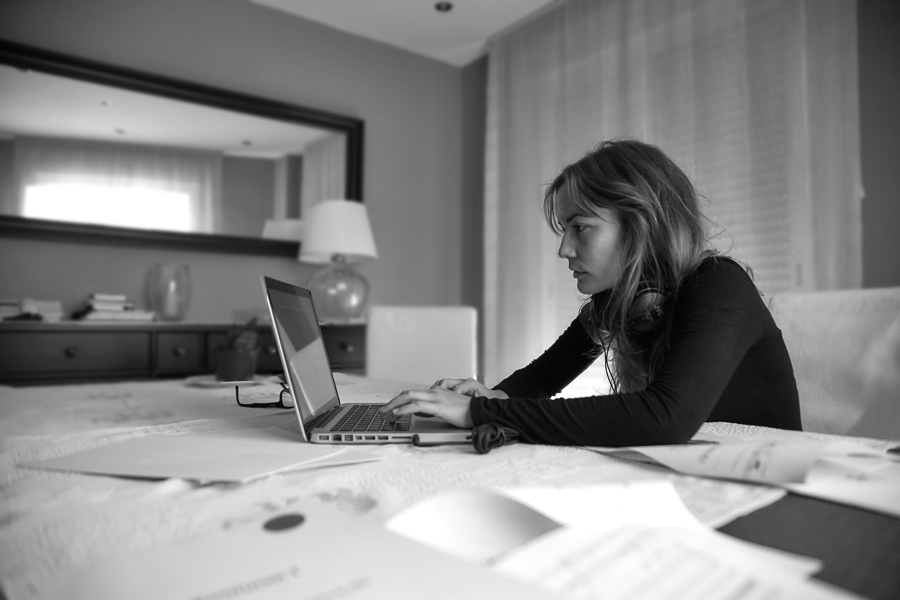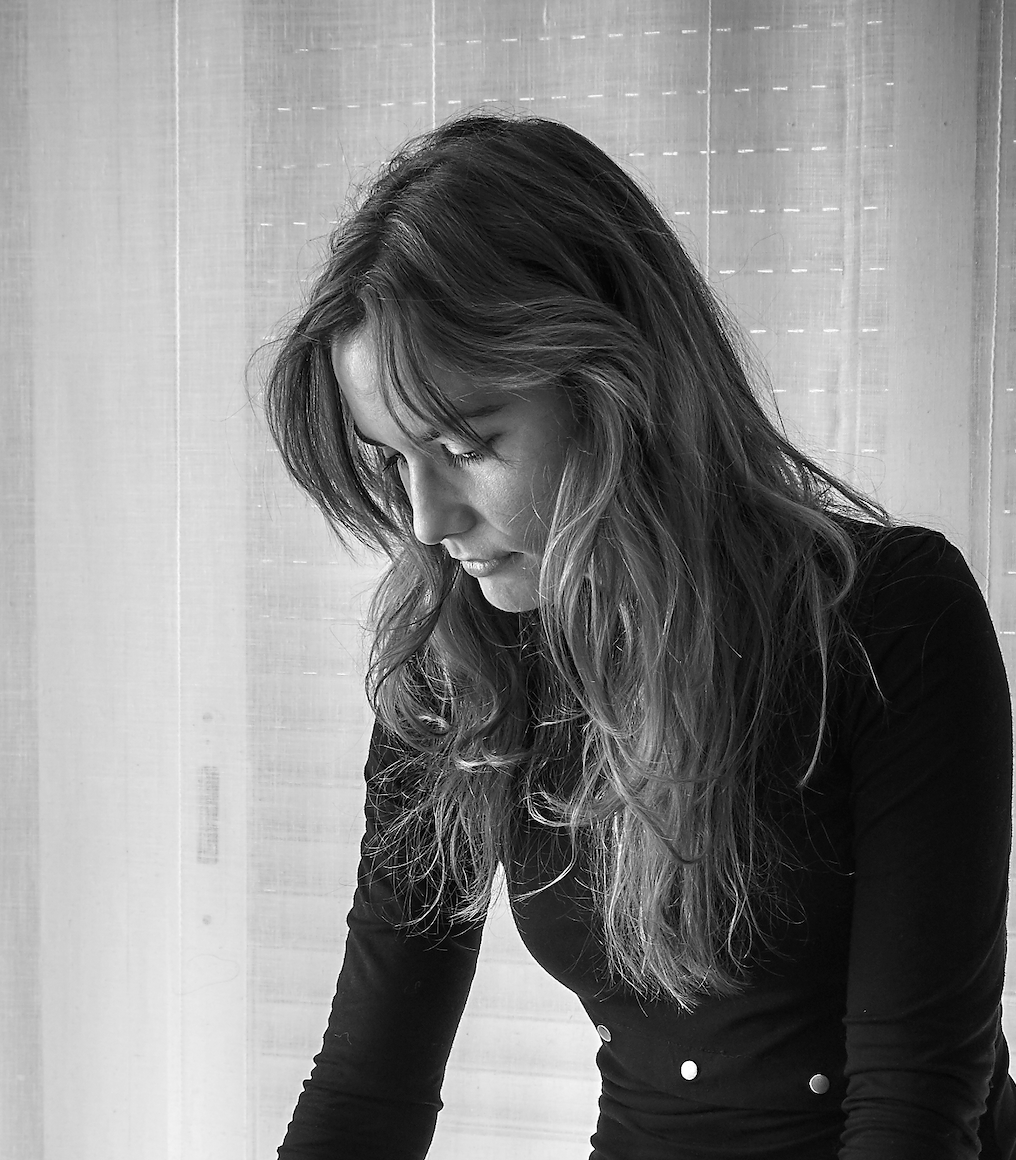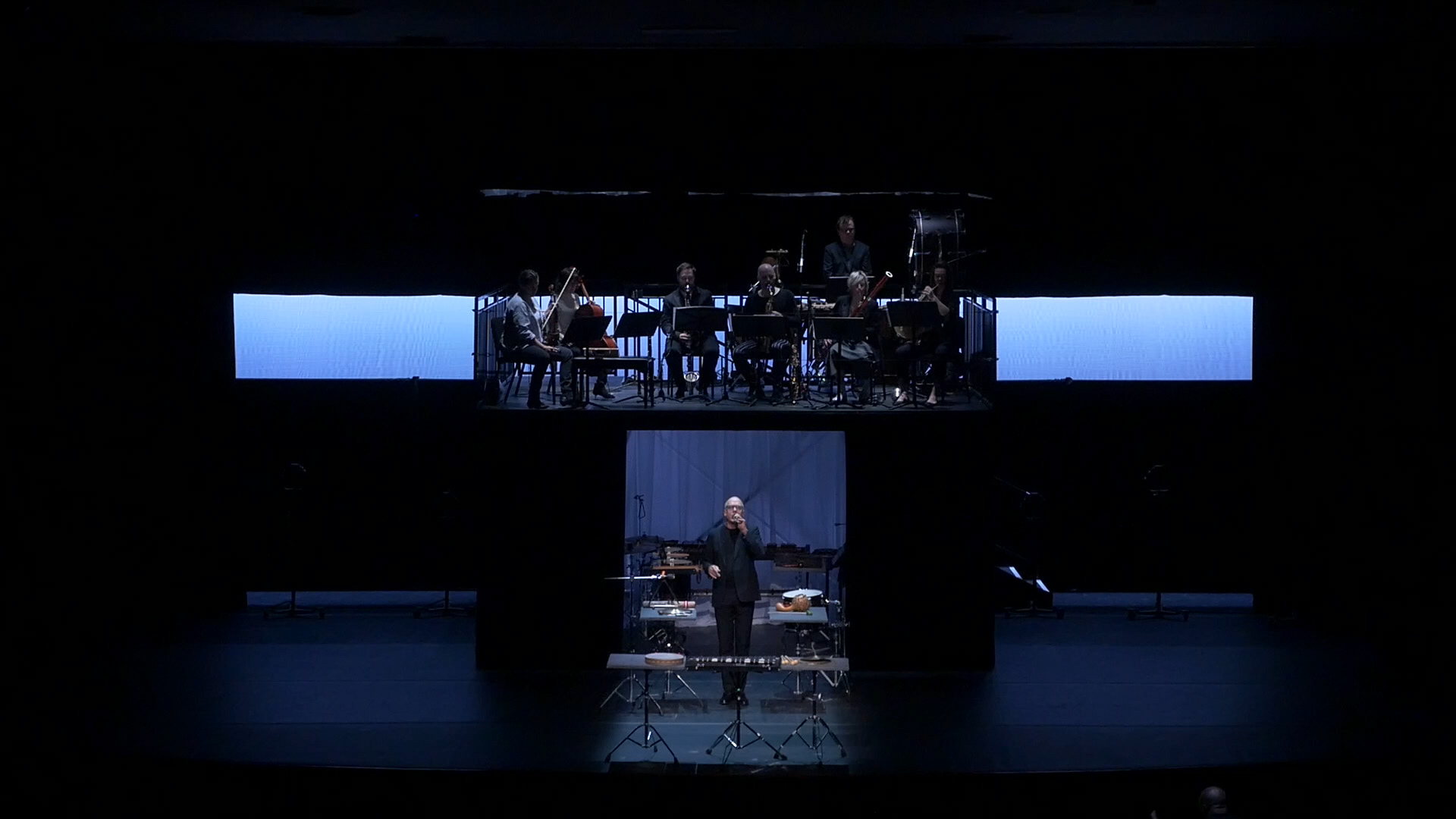Cécile Olshausen
“Sometimes I feel like I’m living on a train,” says Helga Arias and she laughs. The Basque composer was born in Bilbao in 1984 and now lives in Switzerland. She describes herself as a nomad, because she has been on the move since her childhood and lived in many different places. In the spring of 2020, however, everything suddenly had to stop because of Corona.

Hours of video calls
Helga Arias had actually planned a longer stay in the USA; the International Contemporary Ensemble (ICE), an artists’ collective from New York, having invited her as composer in residence. But she had to stay in Europe because of the pandemic and the ICE‘s musicians in New York were also isolated and could not rehearse because of the lockdown. This standstill triggeerd creative energies in Helga Arias though and so the work I see you for amplified string quartet and live video was created and premiered at the opening concert of the SONIC MATTER Festival in Zurich in December 2021.
As real encounters as well as planned collective forms of work were not possible, Helga Arias brought the ensemble together through video call. First connecting individually with each member, recording sounds and tones for hours, but also having conversations about art, taste, music and mental states. She assembled audio-visual material and then distributed it among the quartet’s members. Bringing them together, even though everyone was stuck at home. An artificial, but also artful form of communication.
It was only a few hours before the premiere in Zurich that the composer and the quartet finally met in person and were able to assemble the virtually created video and score of I see you on. During the pandemic, a creative and different model of collaboration emerged, one in which all participants, both composer and players, are artistically involved on an equal level.
Helga Arias, I see you, International Contemporary Ensemble, UA Festival Sonic Matter Zürich, 2.12.2021 / Sound-recording: Eigenproduktion SRG/SSR
Intoxicated by stimuli
Helga Arias is sensitive and modern, observing everything without ever ignoring the world, including the virtual world of digital media, when composing: Hatespeech, Me Too debates and Fake News are elements of her music. “Contact with society is very important to me,” she explains, “it’s called contemporary music, so it has to be contemporary. What happens in the world also has an effect on my musical ideas.”
In her performance Hate-follow me – world premiered during the Bern Music Festival in September 2021 – Arias mixes the vocal sounds of four sopranos with intrusive signals of mobile phones and social media rush images on video: spiteful insults alternate with intrusive body poses, a mixture of senseless seduction and hatred, accompanied by incessant vibrating, ringing, tweeting and beeping.
Helga Arias: Hate-follow me, UA Musikfestival Bern, UA 5.9.2021
This oppressive excess of acoustic as well as visual inputs ist the composer’s goas though which Helga Arias draws our attention to the waterfall of messages that pours in on us every day. Even if we could read one message, it is immediately replaced by the next. The individual piece of information losing its meaning. In the process, the composer condenses sound and image in a scary, fascinating way and one begins to suspect why hate news in particular spreads so quickly and so widely.
“So sorry”
Hate-follow me drastically shows that the unlimited space of the World Wide Web is not used for maximum openness and diversity. Rather, the perspective narrows when influencers and bloggers spread standardised clichés and cement old role models. Instead of celebrating differentiated polyphony, uninhibited hate speech silences many on the internet. Hate-follow me ends – after a mediatic collapse – in a torrent of apologies. But this is not conciliatory, for the thousands of them “sorrys” seem tacky and hypocritical. This piece is an astonishing paradox: Helga Arias composes music that won’t let us go, by asking us to turn it off. If we do, we withdraw from the madness of the world; if we don’t, we submit to it.
For Helga Arias, works like Hate-follow me or I see you are opportunities to reflect on her role as composer as well as her relationship with performers and audiences: “The performers of my music are not playing machines and I am not their boss telling them what to do! It’s about complex interactions.” Also with the audience. Thus Helga Arias does not and doesn’t want to convey a message. We listeners have to find out for ourselves how to cope with the contradictions and craziness.
Cécile Olshausen

International Contemporary Ensemble
On March 26, Helga Arias will be in Ascona for a conferenza-concerto as part of the Festival Ticino Musica.
Radio programs SRF 2 Kultur:
Musik unserer Zeit: I see you – die Komponistin Helga Arias, editor Cécile Olshausen, Wednesday, 9.2.22, 20:00h / Saturday, 12.2.22, 21:00h
SRF-online, 14.2.22: Komponistin Helga Arias – Sie macht auch Hate Speech zu Musik, Text Cécile Olshausen
neo-profiles:
Helga Arias, Festival Sonic Matter, Musikfestival Bern, Ticino Musica



